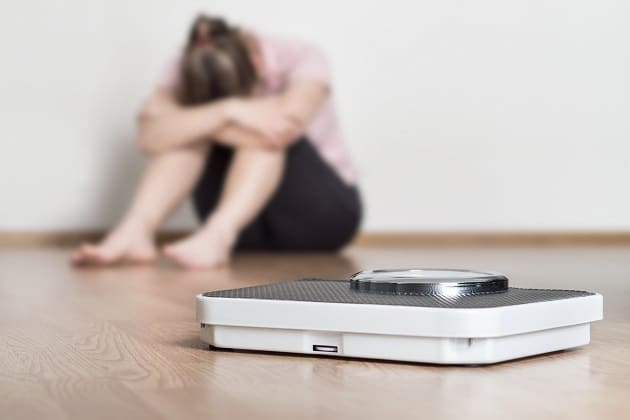
October 26, 2020
Bariatric Surgery is presently regarded as one of the most effective ways of losing weight with the highest rates of long-term weight maintenance. It is, however, prescribed only when conventional weight loss methods including dieting and exercising fail. Sleeve gastrectomy is a bariatric surgical procedure that involves the permanent surgical removal of a large portion of the stomach. Individuals undergoing the procedure will see a sharp reduction in appetite and get satiated easily, allowing them to lose weight rapidly. That said, much like any other procedure, weight loss sleeve gastrectomy too is not immune to relapses. Although not common, in some cases, there may be weight gain post-surgery. To help understand the reasons behind such weight gain and what can be done, we present a blog post detailing four things to do when experiencing weight gain post sleeve gastrectomy.
Make Lifestyle Changes
The problem of weight regain is especially prominent in individuals who are not able to curb their old habits of graze eating, eating beyond feeling full and those who don’t fail to keep a track of their weight. Individuals with food addictions stemming from stress, cravings and overall unhealthy food choices are also more prone to regaining weight after the procedure. Undoing this requires developing habits such as healthy eating, regular exercising, and practicing moderation when it comes to diet.
Seek Professional Help
A smart way to approach the problem would also be to seek guidance from your weight loss specialist. These health professionals will guide you to seek help from professionals including dieticians, psychologists, and trainers who can help you cross the hurdles that are preventing you from losing weight and experiencing the benefits of the procedure. They can also help you set up targets, keep track of them, give advice specific to your body and metabolism type as well as offer moral support.
Join a Support Group
The challenge of losing weight again or even maintaining it after a surgery can be a lonely one for many. They may lack motivation or the right perspective to stick to their goals and routines. It is highly advisable to join a local support group consisting of more people who have undergone bariatric surgeries or any other similar procedure. Even though this sounds simple, it can have significant effects on your progress as patients get context about their own problem and the road ahead doesn’t seem as dark since many people have walked it already.
Consider a Revisional Surgery
A revisional surgery should strictly be treated as a last resort after all the above options have failed. Generally speaking, your weight loss specialist would advise you whether you need to opt for a revisional surgery, and even if you do, what kind is right for you. Here are the common revisional procedures for sleeve gastrectomy:
- Converting to duodenal switch
- Converting to gastric bypass
- Re-sleeving
- Converting to Lap-Band
The Final Word
The success and failure of a sleeve gastrectomy depends as much on the post-surgical habits as it does on the surgeon performing the surgery. A committed effort to follow and maintain certain habits can be an important factor in a patient’s physical and mental well being. To discuss what to do in case of a weight relapse after a bariatric surgery, connect with a trusted weight loss specialist and general surgeon. If you or a loved one are looking for minimally invasive weight loss procedures or reversing any currently performed procedure, look no further than DFW Bariatrics and General Surgery, Dallas. If you have any questions or wish to learn more about revision weight loss surgery in Dallas, call 469-620-0222 or write to us at [email protected].
